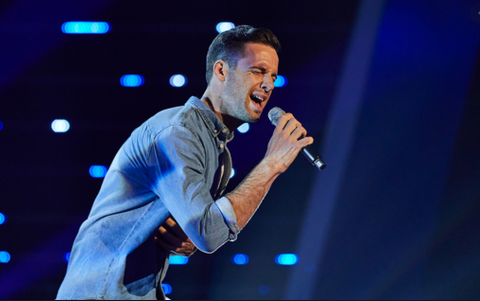It is twenty years since Ben Fogle became Britain’s first break-out reality TV show star, when he a participant in the reality television Castaway 2000, which he has turned into a career as a “broadcaster, writer and adventurer” (as his Wiki bio puts it). In the years since, reality TV has created a whole new raft of celebrities,
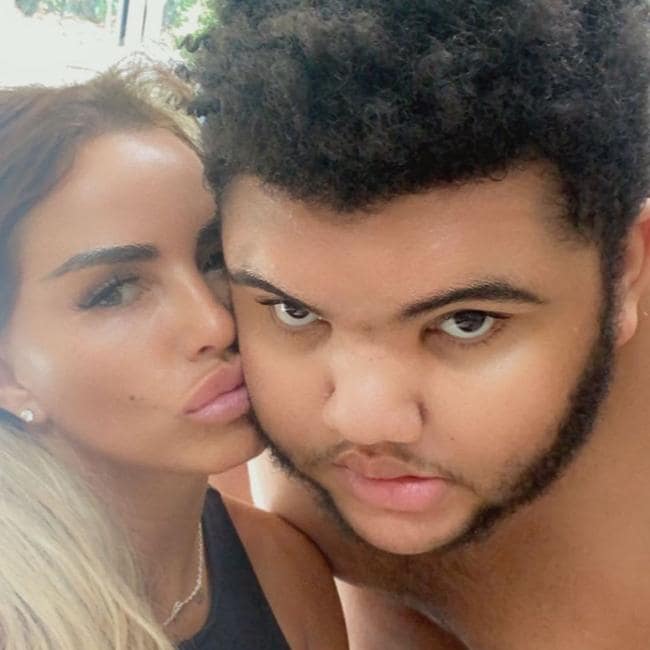
Even celebrities (of sorts) have participated in the shows to reignite their careers, like model Jordan (later known as Katie Price) who did the third series of I’m a Celebrity… Get Me Out of Here in 2004 (and returned to it in 2009), then turned reality TV into a career all of its own, becoming a franchise as star of reality TV versions of her own life with Jordan, Katie & Peter, Katie, Signed by Katie Price and Katie Price: My Crazy Life, not to mention winning the 2015 version of Celebrity Big Brother. Just last week a TV documentary she did with her son Harvey (pictured above) was broadcast on the BBC, which according to a review in The Times by Carol Midgley presented her in a “new, more meaningful light”, which in contrast to her public persona as a former glamour model, showed her as “just a mother fighting for a son whose special needs are so complex”.
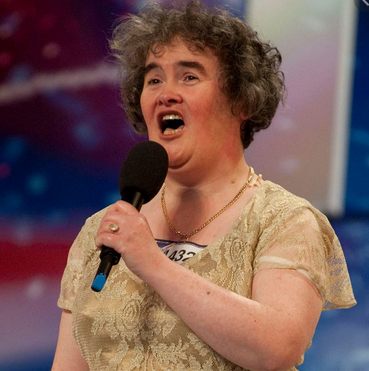
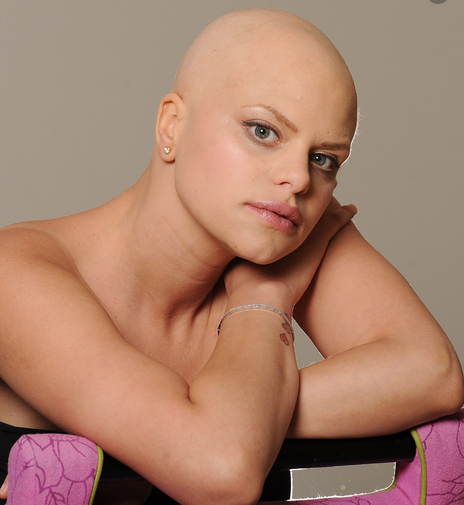
If she is the ultimate example of the genre feeding on itself, it has also created a whole new raft of improbable celebrities from Susan Boyle (who turned up on Britain’s Got Talent in 2009 an complete unknown and became a global superstar, above left) to the late Jade Goody (above right), the Bermondsey dental nurse who life (and young death) became a national obsession and living soap opera.
It was inevitable that the theatre world would co-opt the genre, with Andrew Lloyd Webber — ahead of the publicity game as ever — launching the UK’s first West End casting by reality TV with the 2006 series How Do You Solve a Problem Like Maria? to find an unknown young talent to star as Maria in a London Palladium revival of The Sound of Music that he was producing, which led on to other casting series for his own productions of Joseph and the Amazing Technicolor Dreamcoat, The Wizard of Oz and Jesus Christ Superstar, plus Cameron Mackintosh’s revival of his own production of Oliver.
It was a scheme that was initially derided by many in the profession, including director Trevor Nunn (original director of Cats, Starlight Express and co-director of Les Miserables) who commented then:
“I think that what these reality programmes more or less rely on is the viewing public being witness to distress, or being witness to coping with failure, or inability to cope with failure. That is absolutely not how casting proceeds in the theatre under normal circumstances. It is much more to do with the respect of people and the encouragement of people. It is to do with advising people to whom you say ‘no’ about what their next step may be. The reason there is an appetite for it is because it is the opposite of what actually goes on…. I hope that casting doesn’t become a group of people behind a table saying ‘You’re out’, and watching them burst into tears.”
I interviewed Lloyd Webber in 2006 (for the Sunday Express), and he told me then: “I love theatre, and I love musicals. I’m really pleased with the Maria programme, because it really brought them back to attention again – it has fuelled interest in musicals right across the board. People have realised that musicals aren’t necessarily crusty old things that only appeal to people of my age. It’s fantastic that we’ve got Wicked, Spamalot, Evita and The Sound of Music all selling out. Even old Phantom has come on a notch since the Maria show,” he said of a show that then had just celebrated its 20th anniversary.
I even quoted Nunn’s comment back at him, and he replied: “Trevor sent me an e-mail saying he was entrapped. I thought it was very funny and wrote back that he was Von Trapped! I don’t agree with him, though. I know what happened behind-the-scenes, and how much time and tender loving care they all got. And I’m very proud of the fact that of the final five, they’ve all got jobs now.”
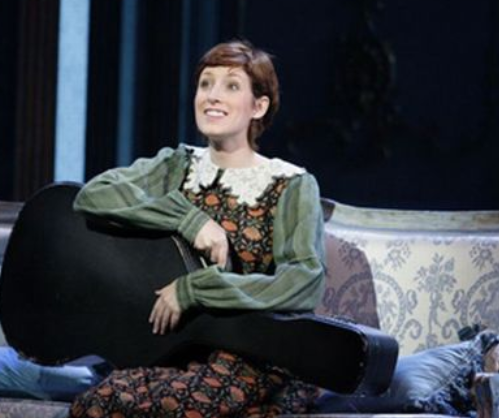
Those five comprised winner Connie Fisher (pictured above), Helena Blackman, Siobhan Dillon, Aoife Mulholland and Abigail Finley, and they would indeed go on the further West End careers (though Fisher had to stop live performing after suffering from congenital sulcus vocalis — holes in her vocal cords — she continued to work as a TV presenter and now works as a TV producer).
When it came to casting a take-over for Fisher, Lloyd Webber was innovative once again, blurring the boundaries between fact and fiction as he joined the TV series Hollyoaks to offer the role of Maria to a fictional character being played by Summer Strallen — who then took over. “Andrew at 60 is coming up with ideas that younger producers should be having”, said Madeleine Lloyd Webber of her husband’s initiative in 2008, and when I interviewed him again that year, he acknowledged the truth of this, commenting, “There’s no point sitting trying to do things in the old conventional ways – we are living in a completely different world.”
In the same interview, he told me about how he’d had to become familiar with being approached in the street. “It’s very, very young people who tend to come up to me in the streets and want autograph – kids from 8 to 10 and upwards to about twenty; they are the ones who are really interested, and I think it’s great. It really has excited an ordinary public to go to the theatre again. One of my favourite letters was from a school who said they’d gone to see Joseph because of the TV show and then went to see War Horse at the National – and how much better they thought War Horse was!”
By the time Jesus Christ Superstar sought its Jesus via the ITV talent show Superstar!, performers with West End credits to their name like Roger Wright (who’d played Simba in the original London company of The Lion King) and David Hunter (who’d already been part of the original National Theatre company of One Man, Two Guvnors) were among the finalists, while the likes of Oliver Tompsett and Alex Gaumond had been excluded in earlier rounds.
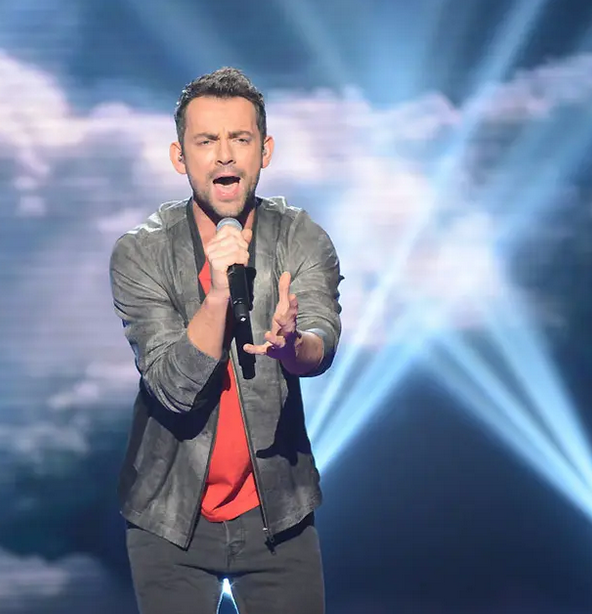
The contest was ultimately won by Ben Forster (pictured above) who’d also already had stints in a couple of West End flops, La Cava and a short-lived Beatles revue called All You Need is Love, before becoming one of the original lead singers in the first West End run of Thriller Live. When I interviewed him in 2015, he remembered turning up for Superstar’s ‘bootcamp’ round in Majorca and seeng Tompsett and Gaumond there:
“I thought I should just go home! I knew Ollie a bit and he has those amazing locks of hair and a Jesus face; and Alex was already a West End star [he’d had a featured role in Legally Blonde]. But it was the way things were going — if you couldn’t beat them, you had to join them, and it could open doors.”
That devil-may-care attitude has spread to other performers who’ve also chosen to expose themselves to the opportunities — but also the dangers — of trial-by-reality television.
The current season of ITV’s The Voice has already featured West End performers Matt Croke (who played the title role in Aladdin) and Lauren Drew (best known for Six). Last weekend, 31-year-old Andrew Bateup, a performer who trained at the Royal Academy of Music and secured his first job in Bill Kenwright’s touring version of Joseph and the Amazing Technicolor Dreamcoat immediately afterwards, was another contestant, and after watching him on The Voice on Saturday, I spoke to him on Sunday to find out how and why he’d ended up on The Voice.
As he told me,
“I was very lucky to play the role of Butler in Joseph between 2012-15. They were some of the best years of my life and from that moment I truly felt my career was heading in the right direction. Unfortunately I wasn’t quite prepared for was the series of rejection that was headed my way. You have to have an incredibly thick skin to be able to stick it out in the theatrical world. It is equally as mesmerising and beautiful as it can be incredibly soul destroying. My mental health began to suffer and I decided to step away from it. I found a love of teaching and spent the last few years as a peripatetic singing teacher at The Lady Eleanor Holles School in Hampton. I managed to create a very stable life for myself which meant teaching during the week and singing at events on nights and weekends.
“Turning 30 was quite the milestone for me. As most of us do when we are younger, we create aims and aspirations for certain ages. As someone that always struggled with their weight, I always said that I was going to be in the shape of my life by age 30. Quite the opposite happened and I was at a complete loss. I was suffering with confidence issues, having episodes of severe anxiety and the heaviest I had ever been. I finally decided to do something about it. I created an exercise routine that I enjoyed, changed my nutritional habits entirely, giving up meat and alcohol and powered my way through 2020.
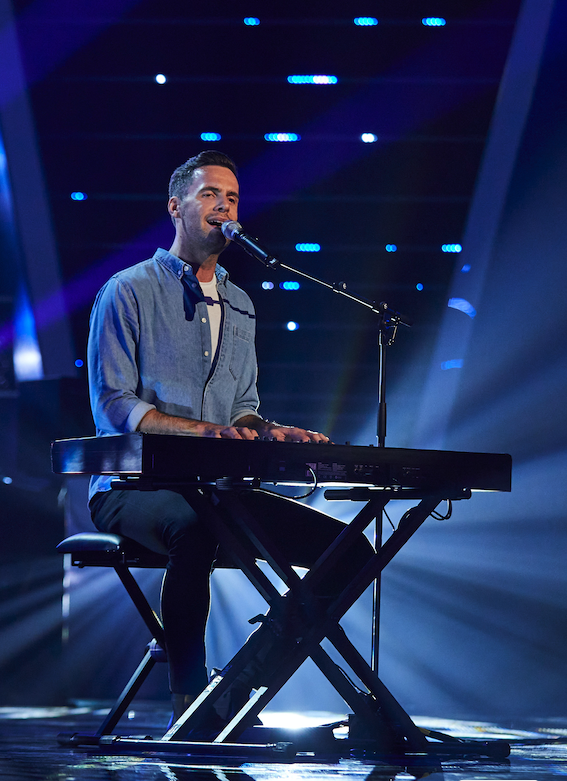
Andrew Bateup in The Voice UK, Saturdays, 8.30pm on ITV
“Suddenly The Voice came out of nowhere. Having not sung for quite some time due to the pandemic, I wasn’t sure it was the best thing to do. I almost cancelled the invitation because I was happy where I was mentally and didn’t need the anxiety of auditioning back in my life. As with most performers in the pandemic, not much was happening besides the odd Zoom quiz or baking banana bread, so I thought why not! What have I got to lose. I’ve auditioned for reality programmes before but never managed to get a slot singing to the celebrity coaches. It turned out that 2020 was going to be my year and I’d get that opportunity! I lost around 5 stone, got engaged, bought a house and managed to secure an audition on The Voice UK.”
I then raised the spectre of Kerry Ellis — the Wicked alumni who’d already achieved considerable success as a West End headliner before doing The Voice in 2012, but failed to get any of the panel to turn around for her. Was he afraid the same might happen to him?
“One of the biggest anxieties about auditioning on a major reality television programme was exactly that. As performers we can be incredibly vulnerable in auditions. We give ourselves wholly to a panel and hope for the best. Now imagine the possibility of walking into a silent studio, the coaches not liking it and then just walking off, all whilst knowing 4 million people would be watching at home on ITV. It was a terrifying thought but something I just had to push to the back of my brain.”
At the same time, he had everything to gain and not too much to lose, especially now, with other opportunities for live performance effectively suspended.
“The pandemic has certainly caused absolute havoc in the arts. I do think it would be fair to say it is probably one of the worst affected industries! It’s incredibly sad to see theatres dark, film and television being postponed and live music disappear altogether. Of course The Voice is an incredibly powerful platform during a pandemic or not. Millions of people watch the programme every Saturday and it’s a great place to try to get seen and heard. I’m incredibly grateful to have been able to sing with a live band during the pandemic while filming my Blind Audition. David Tench (MD, The Voice UK) and his band are exceptional musicians and it was an experience I will never forget. Hopefully we can bring a bit of happiness and joy to people at home, as we all navigate our way through this bizarre pandemic.”
In fact, not one but two judges turned their chairs around on the night, and he had to choose between Tom Jones and Olly Murs (himself a reality TV alumni as a semi-finalist in the 2009 series of The X Factor).
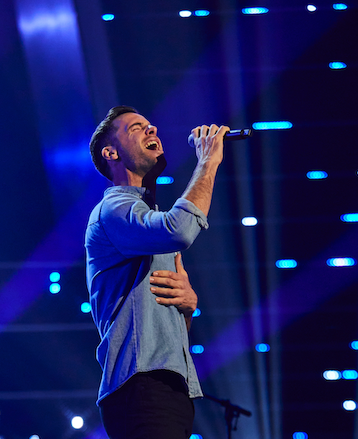
“I’d honestly convinced myself that I wasn’t going to get any of the coaches to turn their chairs. When Olly and Sir Tom hit their buttons right at the end of my song, I was overcome with emotion. It was a truly special moment and one I will treasure for the rest of my life. Sir Tom Jones was very kind with his comments prior to the song, not only praising my vocal but my nature as well. I decided to choose Olly Murs largely because I thought he could be more relatable. Not only has he experienced what it’s really like to be a contestant on a reality singing programme, he also speaks very passionately about the competition and his team. He was the first coach to turn and my heart honestly started pounding the moment it happened.”
And where, finally, does he hope it might lead in the end?
“As an unknown artist, I do hope that perhaps The Voice UK may open some doors that were not available to me before. It is a dream of mine to record my own music, bringing together my background of classical, musical theatre, jazz and soul into one album. I would love the opportunity to audition for leading roles, something I’ve never had the opportunity to do. Performing a lead role on a UK Tour or even on the West End is definitely on my bucket list. One can only dream!”

